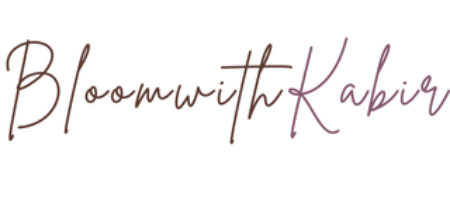Ask anyone how life is going, and you’ll likely hear the same response: “Busy with work.” We are always on the move, tackling endless to-do lists, meeting deadlines, and chasing productivity.
But have you ever stopped to wonder—when was the last time you did absolutely nothing? What happened to just doing nothing?
In a world that glorifies hustle culture, slowing down feels counterintuitive. We compare busyness with success and productivity with self-worth. However, psychologists argue that constantly powering through work without taking breaks can be harmful to both our mental and physical health.
Yet, when we do take breaks, we often turn to screens—scrolling through social media, watching videos, or listening to music. Rarely do we allow ourselves the space to be alone with our thoughts. And that, according to experts, is where the problem lies.
The Science Behind Doing Nothing
Dr. Lisa MacLean, a psychiatrist at Henry Ford Health, emphasizes the importance of taking time-outs. “Sometimes we need to idle the engine and just be. A well-placed time-out can be extremely effective, improving your ability to innovate, reason, and be present in your daily life,” she explains.
Scientific research supports this. When we take a break from external tasks, a part of our brain called the default mode network (DMN) becomes active. The DMN is responsible for self-reflection, creativity, and memory processing. Essentially, when we stop engaging with distractions, our brain has the opportunity to process information, make connections, and generate new ideas.
Doing Nothing Isn’t Laziness—It’s a Productivity Hack
Contrary to popular belief, doing nothing isn’t about being lazy or lacking ambition. In fact, it can be a powerful tool for fostering well-being, creativity, and overall happiness. Taking a pause allows the mind to reset, promoting mental clarity, reducing stress, and improving focus.
Yet, taking a break is easier said than done. We live in a world where busyness is seen as a status symbol. Not having something to do can feel uncomfortable, even guilt-inducing. However, always being “on” can negatively impact your health, relationships, and even your work.

The Negative Effects of Constant Busyness
If you’re always caught up in work without taking mindful pauses, here’s what you may experience:
- Increased stress and anxiety: The pressure to stay busy can lead to chronic stress and anxiety.
- Feelings of guilt : The inability to slow down can make you feel frustrated or guilty when you do rest.
- Poor sleep quality : Stress and overworking can disrupt sleep, leading to fatigue and health issues.
- Social isolation : Being too busy can make it difficult to connect with friends and family.
- Burnout : A non-stop work cycle can lead to mental and physical exhaustion, reducing your overall productivity.
The Benefits of Doing Nothing
So, what happens when you intentionally slow down and give yourself time to just be?
- Enhanced problem-solving : Taking breaks can improve logical thinking and decision-making.
- Boosted creativity : Letting your mind wander often leads to fresh and innovative ideas.
- Better learning retention : Stepping away from tasks helps consolidate and process new information.
- Increased productivity : Research shows that short breaks improve concentration, making you more efficient.
- Greater emotional well-being : Taking time for self-reflection fosters personal growth and happiness.
- Improved relationships : When you’re less stressed, you’re more present and engaged with others.
How to Embrace the Art of Doing Nothing
- De-stress intentionally: Start by recognizing when you’re overwhelmed. Use a stress tracker to identify patterns and take proactive steps to rest.
- Disconnect from technology: Unplug from digital distractions. Try spending time without your phone, TV, or laptop to reconnect with yourself.
- Spend time in nature: A simple morning walk or sitting in a park can be incredibly refreshing. Observing nature helps to ground your thoughts and boost mental clarity.
- Prioritize self-care: Self-care isn’t a luxury—it’s a necessity. Give yourself permission to take breaks and prioritize activities that bring you joy.
- Practice mindfulness and meditation: Even a few minutes of meditation or quiet contemplation each day can help reset your brain and enhance focus.
- Create daily “nothing” moments: Build a habit of dedicating time to doing nothing—whether it’s sipping your coffee without distractions, staring out of a window, or simply lying down and breathing deeply.
If you find it hard to slow down, here are some practical ways to incorporate mindful pauses into your routine:
The next time you feel guilty about taking a break, remember this: The most successful people in history—Einstein, Newton, and even Steve Jobs—found inspiration in moments of stillness.
In the pause, you might just discover the key to your greatest potential. Doing nothing isn’t a waste of time—it’s an investment in your well-being, creativity, and long-term success.
So, take a deep breath. Slow down. And allow yourself the luxury of doing absolutely nothing.




